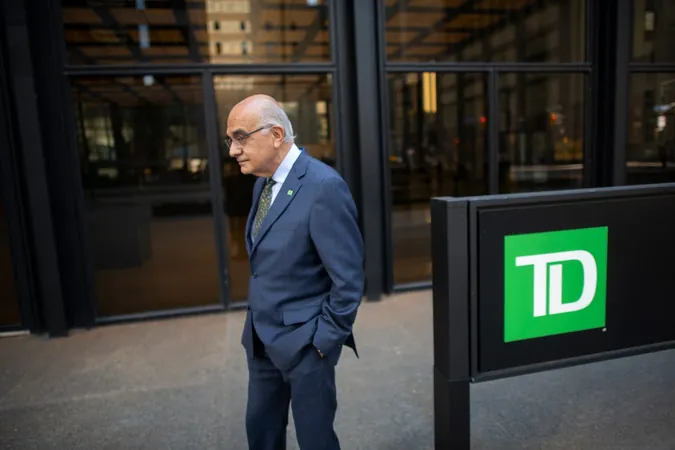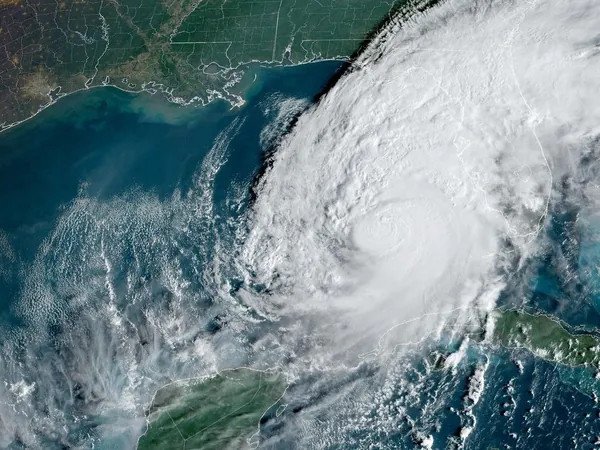
Shocking Revelations: TD Bank's Money Laundering Scandal Exposed!
2024-10-11
Author: Jacob
Shocking Revelations: TD Bank's Money Laundering Scandal Exposed!
In an alarming turn of events, Toronto-Dominion Bank, particularly its U.S. division, has found itself in the spotlight due to severe shortcomings in its anti-money laundering (AML) protocols. A recent report from top U.S. Justice Department officials reveals that these failures were both "egregious" and "pervasive," with low-level employees often joking that the bank had become an easy target for criminals. This culture of negligence extended all the way to senior executives, who ignored various warnings about ongoing illicit activities.
On Thursday, two of TD's U.S. subsidiaries pleaded guilty to multiple felony charges, resulting in a staggering settlement exceeding $3 billion in penalties. This agreement not only fines the bank but also stifles its expansion in the U.S. market for years to come, shifting the focus towards stringent oversight of its remediation plans.
The issues at TD date back nearly a decade, beginning in 2014, allowing vast sums—estimated in the hundreds of millions—of illicit funds to be funneled through the bank. Disturbingly, the bank's automated transaction monitoring system proved inadequate, failing to properly surveil over $18 trillion in customer activities between 2018 and 2020. One notorious criminal, David Sze, remarkably moved more than $470 million in illicit funds through TD branches, with the bank allegedly overlooking obvious signs of misconduct.
U.S. Attorney-General Merrick Garland made a striking statement, asserting that banks that willfully ignore criminal activity are complicit in the crime itself. He emphasized that TD Bank’s lax enforcement of its anti-money laundering policies directly contributed to its plight.
The scandal raises serious concerns about the bank's internal culture, focused excessively on rapid growth and customer convenience—an ethos encapsulated in their tagline, "America's Most Convenient Bank." This prioritization led to a failure in safeguarding the financial system and adhering to legal obligations.
Complicity went beyond executive neglect. Several front-line employees reportedly accepted bribes to facilitate illegal transactions, while others expressed awareness of dubious account activities through informal communications, with one manager even emailing a colleague to suggest shutting down illicit operations with a casual "LOL."
Surprisingly, even amidst alarms raised by employees about suspicious financial behaviors, the designated compliance officers often overlooked crucial red flags. For instance, a branch manager identified frequent cash deposits that became a running joke among staff, yet these transactions weren't adequately reported.
TD’s woes deepened further when it inadvertently opened accounts for a religious institution linked to terrorist activities, failing to perform necessary due diligence. Reports indicate that more than $3 million in suspicious transactions occurred before the bank acted, apparently turning a blind eye to concerning facts which were readily available.
The repercussions of this scandal extend beyond financial penalties. During a recent news conference, Garland affirmed that there are ongoing criminal investigations targeting individual TD employees across all levels. "We do expect to see more prosecutions. No one involved in TD Bank’s illegal conduct will be off limits," he stated.
As TD Bank attempts to navigate this crisis and rebuild its tarnished reputation, critical questions remain: How could such blatant lapses occur at multiple levels of the organization, and what will be the long-term consequences for those involved? Public trust is at stake, and the world is watching closely as this scandal unfolds.









 Brasil (PT)
Brasil (PT)
 Canada (EN)
Canada (EN)
 Chile (ES)
Chile (ES)
 España (ES)
España (ES)
 France (FR)
France (FR)
 Hong Kong (EN)
Hong Kong (EN)
 Italia (IT)
Italia (IT)
 日本 (JA)
日本 (JA)
 Magyarország (HU)
Magyarország (HU)
 Norge (NO)
Norge (NO)
 Polska (PL)
Polska (PL)
 Schweiz (DE)
Schweiz (DE)
 Singapore (EN)
Singapore (EN)
 Sverige (SV)
Sverige (SV)
 Suomi (FI)
Suomi (FI)
 Türkiye (TR)
Türkiye (TR)